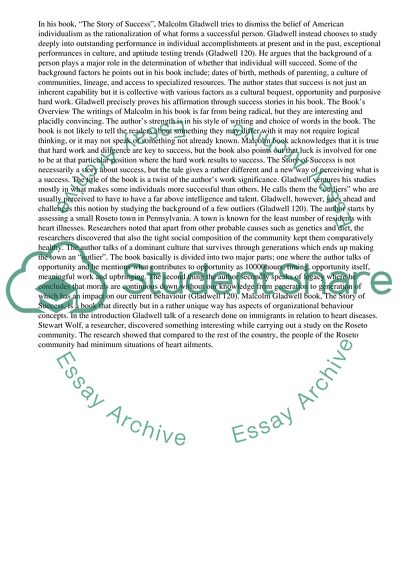Cite this document
(“The Story of Success by Malcolm Gladwell Book Report/Review”, n.d.)
The Story of Success by Malcolm Gladwell Book Report/Review. Retrieved from https://studentshare.org/management/1491962-the-story-of-success-book-review
The Story of Success by Malcolm Gladwell Book Report/Review. Retrieved from https://studentshare.org/management/1491962-the-story-of-success-book-review
(The Story of Success by Malcolm Gladwell Book Report/Review)
The Story of Success by Malcolm Gladwell Book Report/Review. https://studentshare.org/management/1491962-the-story-of-success-book-review.
The Story of Success by Malcolm Gladwell Book Report/Review. https://studentshare.org/management/1491962-the-story-of-success-book-review.
“The Story of Success by Malcolm Gladwell Book Report/Review”, n.d. https://studentshare.org/management/1491962-the-story-of-success-book-review.


